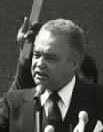Racial Disparities in the Federal Death Penalty: Uncovering the Key Role of Geography
The federal death penalty is plagued by two important types of disparity. One is racial: as of last year, nearly half of federal death row inmates (28 of 57) were black. The other is geographic: out of the 94 federal districts, just 16 have produced 75 percent of the death sentences, and nine have produced nearly half. Although both disparities have been much commented on separately, it seems they are actually connected. Or so argue G. Ben Cohen and Robert J. Smith in an interesting new paper, “The Racial Geography of the Federal Death Penalty,” 85 Wash. L. Rev. 425 (2010).
Their thesis is simply stated. A vastly disproportionate number of federal death sentences come from counties with high minority populations that are located in districts that are heavily white overall. Think diverse urban cores surrounded by lily-white suburbs. Given that federal juries are typically drawn from the entire district, this means that capital trials in these districts are apt to involve minority defendants being judged by white-dominated juries. Having minimal racial diversity on the jury means that black defendants have little protection from the unconscious racial biases that most of us carry around. This, in turn, drives both the racial and geographic disparities in federal death sentences.
The patterns are striking.

